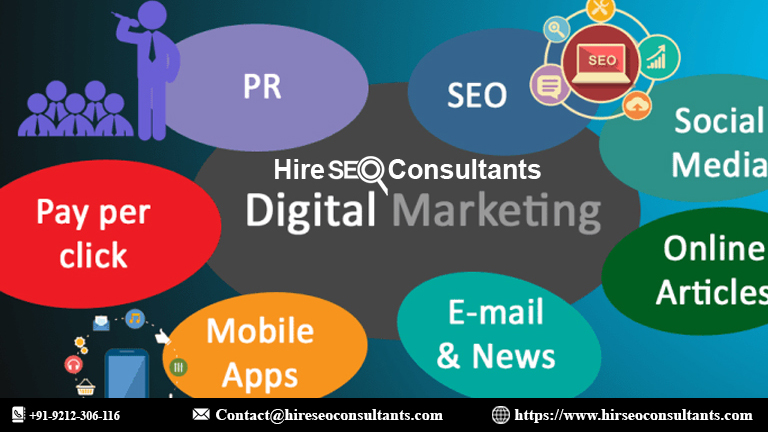How to Create a Compelling Author Website to Boost Sales
Create an author website that not only looks great but also boosts your book sales. Learn key design and content strategies for maximum impact.

One aspect of self-publishing success is a solid online presence—building that visibility and generating more book sales. All said and done, while those big social media platforms and marketplace entities are important, there is that one thing you can own and control: your website as an author. A properly designed site is an easy-to-access place for your readers, showcase your books, and, last but not least, serve your marketing purposes.
In this blog post, we walk you through creating an appealing author website that looks professional and helps you sell more books.
Why Every Author Needs a Website
Before getting into the details of creating a website, one must understand why one needs one. Here are some of the key reasons why an author's website should be a priority:
-
Establishes Your Brand: A website is the best way to build your identity as an author. It allows you to display your personality, express your writing style, and feature all of your books in one location.
-
Acts as a Sales Hub: The website becomes your direct sales channel; this means readers can buy your books straight from you, often at a higher profit margin than other retailers.
-
Direct Engagement: A blog post, email signup, and a contact form on the website allow you to engage directly with your public and create a loyal fanbase that returns for more.
-
Supports marketing and SEO: A website is one of the best ways to increase your online presence and be discoverable through search engines. Optimizing your site with relevant keywords and fresh content can attract organic traffic. For that, you can get professional help from Author Website Development Services.
Key Features of a Compelling Author Website
Now that we've covered why you need a website let's look at the must-have elements that will make your author's website shine and help you increase book sales.
A Professional Design That Reflects Your Brand
First impressions matter. Your website must be beautiful and easy to navigate. Here are some key design principles you should follow:
-
Keep it Simple: A clean, clutter-free design makes your website easy to navigate. Avoid bombarding visitors with too much information on the front page. Ensure that the main sections, books, bio, blog, and contact are easy to access.
-
Mobile Friendly: Most of the current web traffic comes from cell phones. Your site must be designed to adjust to the screen size and remain friendly to users.
-
Branding: This allows for a cohesive look and feel of your website to be synonymous with the themes of your books. Use rich, mystical colors for fantasy authors or soft pastels for romance writers. Ensure that branding is consistent from website to marketing materials.
An Engaging Author Bio
Your author bio is often the first thing potential readers want to read. It's your chance to introduce yourself and tell your story. Here's how to craft an engaging author bio:
-
Professional and Personal: While mentioning your achievements and credentials in writing is nice, don't be afraid to display a bit of personality. Readers want to know about you, the person, rather than the writer.
-
Keep It Brief: Readers will not want to read through a long biography. Keep it to 150–300 words while pointing to the most important accomplishments. Including a professional photo gives readers a face they can associate with your name.
-
Call to Action: Write a Call to Action (CTA) at the bottom of your bio. Whether it's a link to your newest book or an offer to subscribe to your newsletter, the CTA inspires visitors to explore your website further.
Book Pages with Clear Sales Information
Your website should have a dedicated page for each of your books. This is your marketing tool, so there needs to be information to facilitate a buying decision on that page. Here is what to include:
-
Cover Image: Showcase a high-quality image of your book cover. The first thing to come up is the viewfinder, so make it prominent.
-
Compelling Book Description: Your description of the book should make readers want to read the book without giving away too much. Focus on what's unique about your book and why they'll want to buy it.
-
Customer Reviews and Testimonials: If you've got good reviews or endorsements, include them on your book page. Social proof is a powerful driver for buyers.
-
Buy Links: make it very easy for visitors to buy your book. Add bright, distinguishable buy buttons across the page, linking them to either Amazon or Barnes & Noble or through your e-commerce store.
-
Excerpt or Sample: Try giving them a little taste of what your book is about. It could be a free chapter or an excerpt from your work. Hook them into reading more.
A Blog to Connect With Your Audience
A blog should be the most important tool to grow your readership or improve your website SEO. It also lets you update people with insights, knowledge, and personal stories that help you connect with them better. How to ensure your blog works for you:
-
Content Strategy: Post pieces that will resonate with your desired readership. Share writing tips, book updates, behind-the-scenes stories, or personal reflections about the writing process. You can also write on topics related to your genre to keep them interested.
-
Frequency: Consistency is the key. Whatever your frequency, monthly or weekly, regular posting helps people anticipate and follow up more intently.
-
SEO: Use keywords that enhance your search engines' ranking in your blog post. For example, if you write a historical novel, include "historical fiction books" or "best historical novels" among the relevant keywords.
-
Engagement: Include a call to action at the bottom of every blog post, encouraging people to comment, share it with others, or sign up for your newsletter.
Email Signup Forms
Email marketing is one of the best ways to nourish your relationship with readers and get the word out about new books. It's very important to have a newsletter signup form on your website. Here's how to maximize its effectiveness:
-
Incentivize signups: Give something valuable as a reward for signing up. It could be a free sample chapter, a discount on your books, or an exclusive short story.
-
Make the visible Signup form accessible from strategic areas, such as the front page or bottom of the posts, while making pop-ups possible. The more effortless you make it, the higher your chances of seeing a subscriber out of these visitors.
-
Regular Newsletters: When you finally collect subscribers, have newsletters that periodically update them about your books, upcoming events, or promotions. That way, keep your readers interested and excited about your work.
SEO Optimization
Searching Engine Optimization: SEO makes a website discoverable by Internet search engines. By optimizing your site, you can up your chances of attracting organic traffic and potential readers. Here's how to do it:
-
Keyword Research: Use Google Keyword Planner or Ubersuggest to find the most relevant keywords in your genre and books. Then, use them naturally within your book pages, bios, blog posts, and metadata.
-
Optimized Images: Use alt text for the images, especially the book covers and photos. This will let search engines understand what is happening in the image and enhance the SEO.
-
Meta Descriptions and Titles: Craft unique meta descriptions for every page on your site. These are the little blips that show up within search engine results. The better the meta description, the higher your click-through rate will likely be.
-
Internal Linking: Point to other pages in your site, like related articles or book pages. In addition to its SEO benefits, this keeps a visitor on your site for a longer time.
Social Media Integration
For writers, social media is a very useful tool. You may reach a wider audience by incorporating social media accounts into your website. Incorporate social networking buttons into your website so users can quickly follow you on sites like Goodreads, Instagram, Twitter, and Facebook.
Think about including a social media feed on your homepage that displays the latest tweets, Instagram pictures, or postings. This will maintain the liveliness of your website and demonstrate your social media activity to visitors.
Conclusion
The secret to developing your brand and increasing book sales is having an engaging author website. A well-designed website creates trust, draws visitors, and offers a seamless shopping experience. You can successfully advance your writing career using a clear layout, book pages, blog entries, email marketing, and SEO optimization. Self-publishing or traditional publishing can benefit from the addition of Ace Publishing Services.
What's Your Reaction?


















